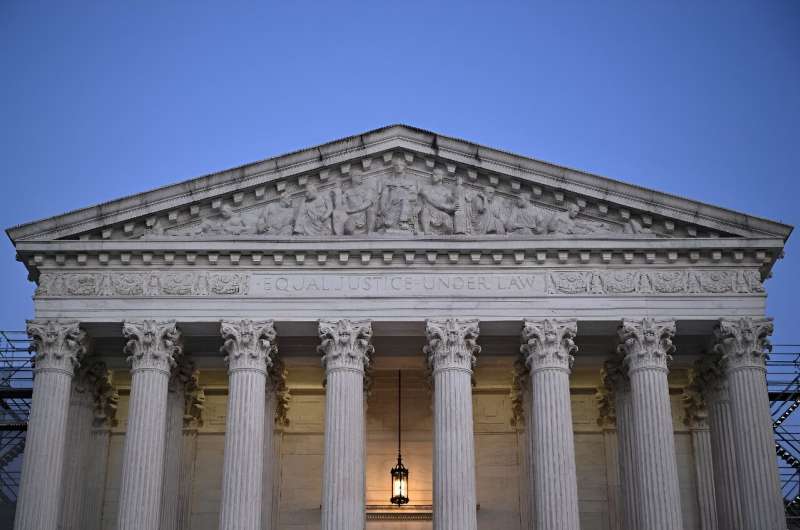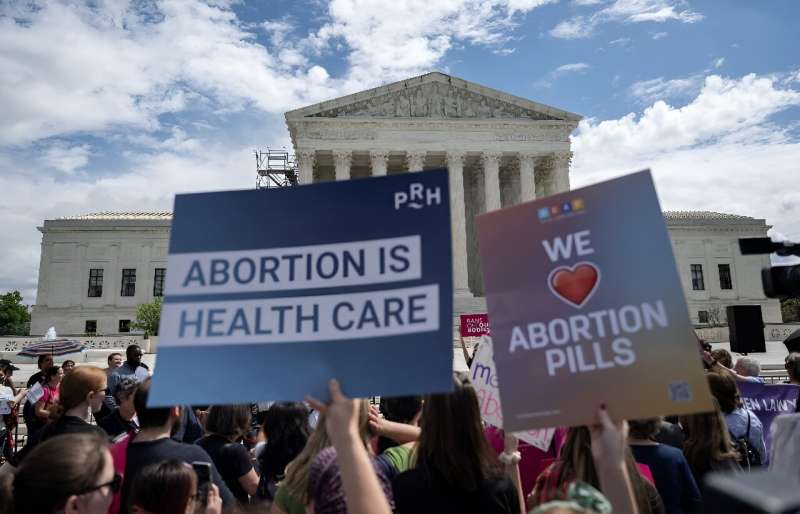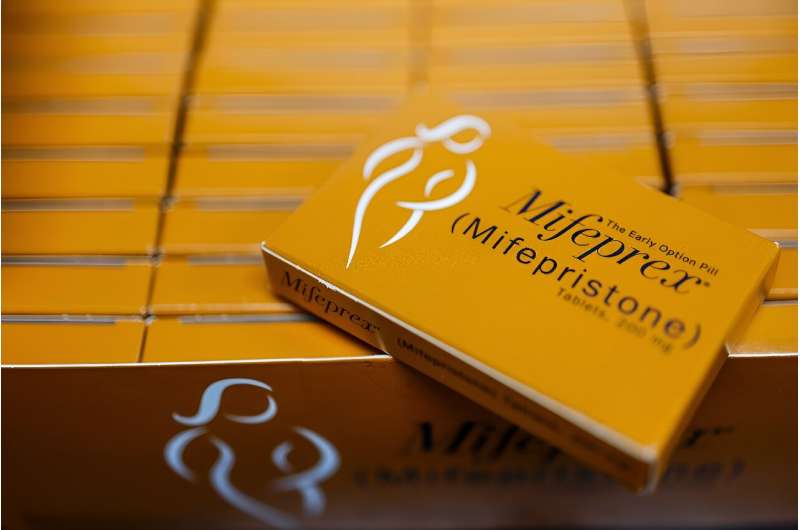This article has been reviewed according to Science X's editorial process and policies. Editors have highlighted the following attributes while ensuring the content's credibility:
fact-checked
reputable news agency
proofread
US Supreme Court agrees to rule on abortion pill restrictions

The Supreme Court agreed Wednesday to rule on restrictions imposed by a lower court on a widely used abortion pill in the latest skirmish in the battle over reproductive rights in the United States.
It is the most significant abortion case to reach the nation's highest court since the justices overturned the constitutional right to the procedure in June of last year.
The lower court ruling imposing restrictions on the use of the abortion drug mifepristone has been on hold pending a decision by the conservative-dominated Supreme Court on whether it would hear the case.
Danco Laboratories, the manufacturer of mifepristone, and the administration of Democratic President Joe Biden had appealed to the Supreme Court to overturn the lower court ruling limiting access to the drug.
In a statement, the White House said Biden was "firmly committed to defending women's ability to access reproductive care" and that mifepristone has been proven to be "safe and effective."
"Across the country, we've seen unprecedented attacks on women's freedom to make their own health decisions," the White House said.
The Supreme Court will hear oral arguments in the abortion pill case next year and is expected to issue a decision by the end of June 2024—four months before the US presidential election in which abortion is almost certain to be a major topic.

A conservative-dominated federal appeals court imposed restrictions this August on the use of mifepristone, which is used in more than half of the abortions in the United States.
The ruling by a three-judge panel of the New Orleans-based 5th Circuit Court of Appeals would limit use of mifepristone to the first seven weeks of pregnancy, instead of 10, and block it from being distributed by mail.
It would also require the abortion pill to be prescribed by a doctor.
Approved over 20 years ago by FDA
Anti-abortion groups are seeking to have mifepristone banned, claiming that despite its long track record that it is unsafe.
At a hearing in May, the government argued that the decision on whether to allow the use of mifepristone should be left to the Food and Drug Administration (FDA), which approved the drug more than 20 years ago.
The case stems from a ruling by a conservative US District Court judge in Texas, an appointee of former president Donald Trump, that would have banned mifepristone.

The 5th Circuit Court blocked his ban on the abortion pill, but imposed restrictions on access, after which the baton was handed to the Supreme Court, where conservatives wield a 6-3 majority.
The Supreme Court temporarily preserved access to mifepristone, freezing the rulings by the lower courts, and the drug remains on the market for the time being.
It has a long safety record, and the FDA estimates that 5.6 million Americans have used it to terminate pregnancies since it was approved in 2000.
"We hope that the justices will uphold the scientific authority of the Food and Drug Administration in this baseless case," said pro-choice organization Plan C, but predicting that "the current makeup of the court... does not bode well."
Since the Supreme Court overturned the landmark Roe v. Wade ruling that enshrined the constitutional right to abortion for half a century, more than a dozen states have banned abortion and it has been severely restricted in others.
In one closely watched case, a Texas woman left the state this week to seek an emergency abortion after the Texas Supreme Court said she could not terminate her risky pregnancy.
Texas has some of the strictest anti-abortion laws in the nation, prohibiting abortions even in cases of rape or incest. Texas also has a law that allows private citizens to sue anyone who performs or aids an abortion.
Polls repeatedly show a clear majority of Americans support continued access to safe abortion, even as conservative groups push to limit the procedure—or ban it outright.
© 2023 AFP

















